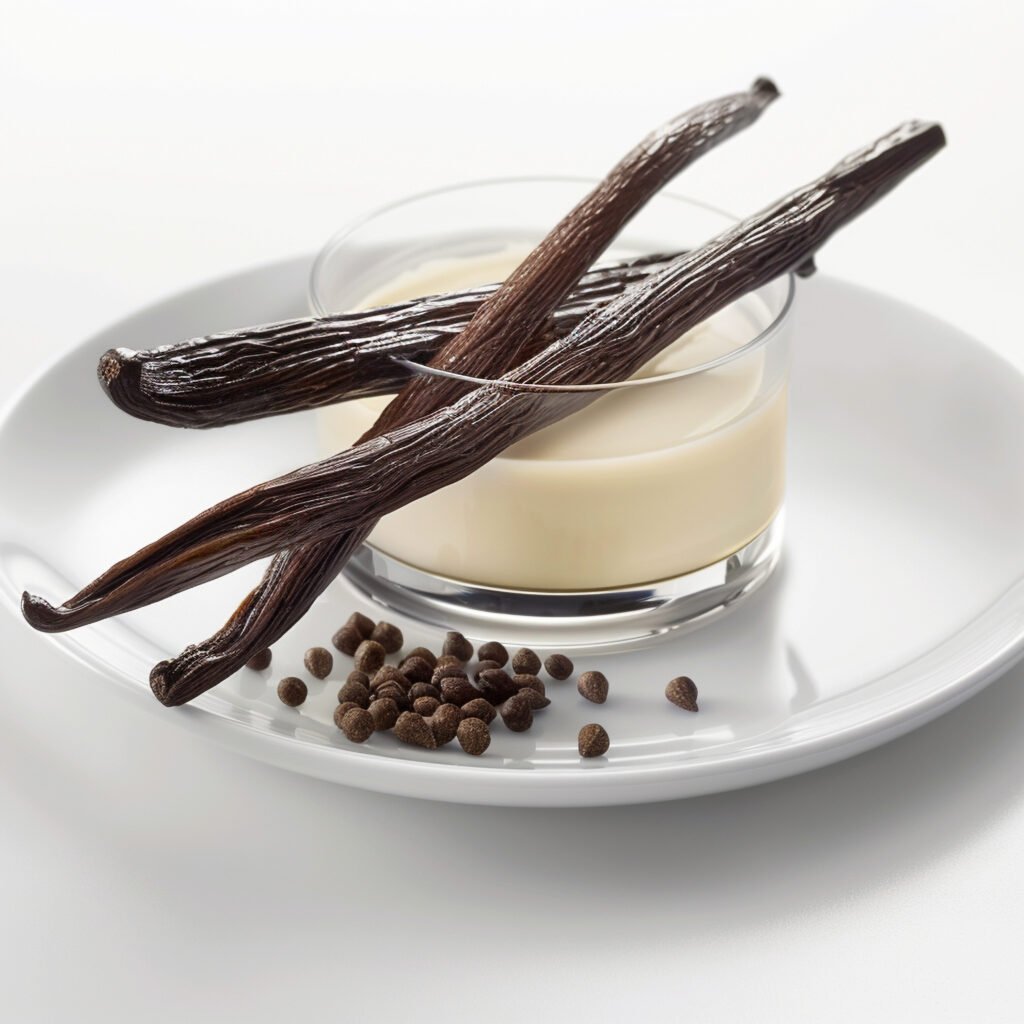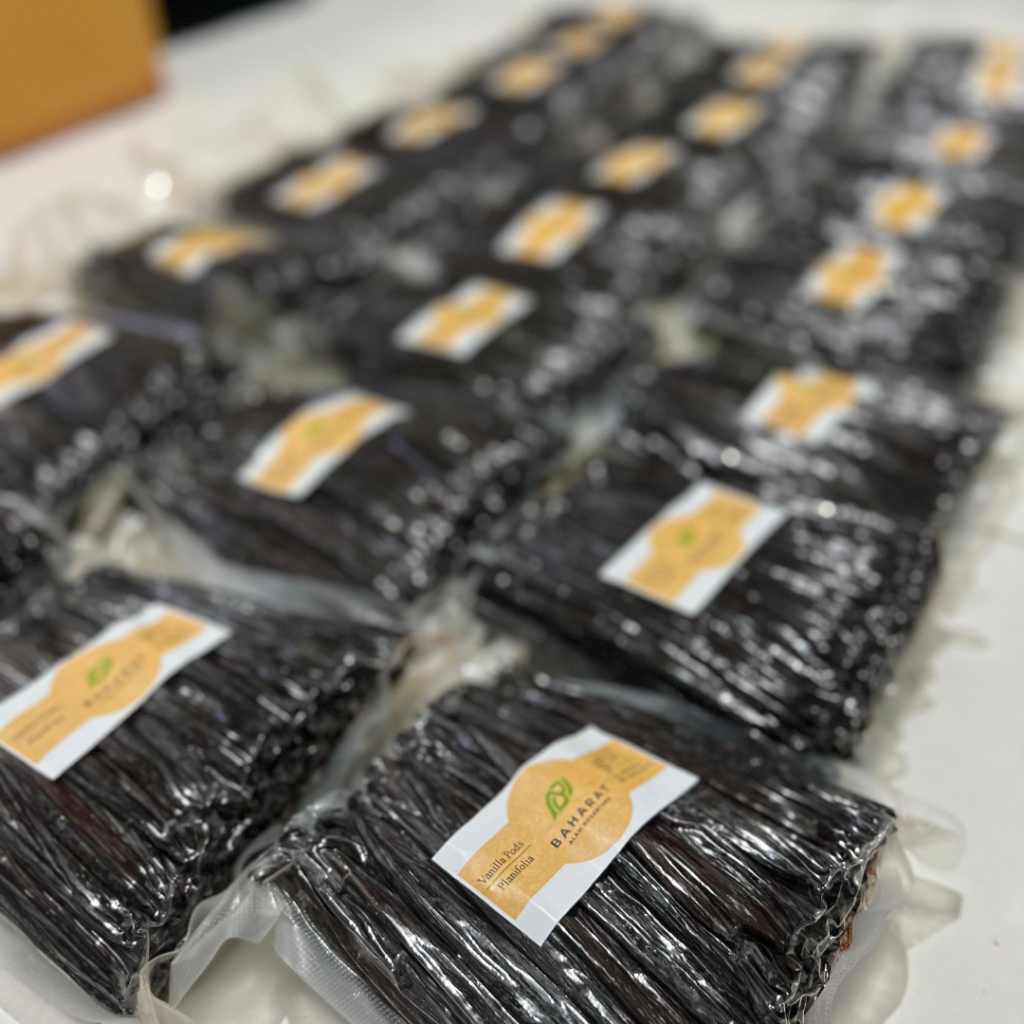Indonesian vanilla has become increasingly important for U.S. food manufacturers and buyers. As demand grows for natural, traceable ingredients, many companies are asking whether they can import vanilla beans directly from Indonesia. The answer is yes, but success depends on understanding the sourcing, regulatory, and logistics requirements involved.
Why Indonesian Vanilla Matters
Indonesia is now the world’s second-largest vanilla producer. The country’s growing conditions and traditional curing methods produce Vanilla Planifolia with a distinctive rich, bold, and creamy flavor profile that works well for ice cream, chocolate, beverages, and baked goods.
The U.S. imported over $78 million worth of vanilla beans in 2023, with Indonesia’s share continuing to grow. Several factors drive this trend. Indonesian suppliers often provide better flexibility in product formats and order quantities compared to other origins. Many producers still use traditional sun-curing methods without chemical processing, which appeals to brands focused on clean-label ingredients.
Indonesian vanilla is available in multiple formats including whole pods, powder, paste, and extracts, making it suitable for both artisanal and industrial applications. The supply chain also tends to offer better traceability, with many exporters working directly with farmer cooperatives.
Import Requirements and Regulations
Importing vanilla beans from Indonesia to the United States is legal and straightforward from a regulatory standpoint. Vanilla beans are classified under Harmonized Tariff Schedule code 0905.00 and don’t require special import licenses.
However, several documentation requirements must be met. All food imports require FDA Prior Notice, which is an electronic notification submitted before the shipment arrives. You’ll also need a phytosanitary certificate issued by Indonesian agricultural authorities, confirming the product is free from pests and meets plant health standards.
Additional certifications may be necessary depending on your target market. Organic certification is important for premium retail channels, while halal certification may be required for certain customer segments. Make sure any supplier you work with holds recognized certifications like USDA Organic or equivalent standards.
The Import Process
Working with an experienced Indonesian vanilla exporter simplifies the process considerably. Here’s what’s typically involved:
Supplier Selection Choose exporters with demonstrated experience in U.S. markets and transparent sourcing practices. Request product samples and verify their certifications and export track record.
Documentation Your supplier should provide the phytosanitary certificate, certificate of origin, commercial invoice, packing list, and any required lab analysis. They should also ensure labeling meets FDA requirements.
Shipping and Logistics Discuss shipping terms clearly. FOB (Free on Board) and CIF (Cost, Insurance, and Freight) are common options that determine who handles insurance, freight costs, and customs procedures.
Customs Clearance Work with a licensed U.S. customs broker who can handle FDA Prior Notice submission, calculate import duties, and manage customs clearance. This prevents delays and ensures compliance.
Storage and Handling Plan for proper storage once your vanilla arrives. Beans should be kept in cool, dry conditions away from direct light. Vacuum-sealed packaging helps maintain quality and extends shelf life.
Shipping Options and Costs
Indonesian vanilla typically ships from Jakarta or Surabaya ports. You have two main shipping options:
Air freight takes 5-10 days and costs approximately $300-500 for a 20kg shipment. This works well for smaller orders or when you need product quickly.
Sea freight requires 20-35 days but costs only $100-200 for the same quantity. This is more economical for larger volumes when timing isn’t critical.
Vanilla is usually packed in vacuum-sealed bags inside food-grade containers to prevent moisture damage and preserve aroma during transport.
Finding Reliable Suppliers
Look for Indonesian vanilla exporters who understand U.S. market requirements and FDA regulations. They should be able to provide full traceability documentation showing the origin of their vanilla, whether from specific farms or farmer cooperatives.
Good suppliers offer logistics support, quality testing, and maintain relevant certifications. They should also be responsive and professional in their communications, understanding the importance of consistent quality and reliable delivery schedules.
Making Direct Imports Work
Direct importing from Indonesia gives you better control over your vanilla supply chain, often at more competitive prices than traditional distributors. The key is building relationships with suppliers who understand your quality requirements and can provide consistent products.
Start with smaller test orders to evaluate both product quality and the supplier’s reliability. Once you’re comfortable with the process and relationship, you can scale up your purchases.
The Indonesian vanilla market offers good opportunities for U.S. food companies looking for high-quality ingredients with better supply chain transparency. With proper preparation and the right supplier relationships, importing vanilla from Indonesia can become a valuable part of your sourcing strategy.
If you’re looking to work directly with Indonesian vanilla producers, Prime Vanilla by Baharat Prime Indonesia provides fully traceable vanilla products in multiple formats – pods, powder, extracts, and paste. They handle all export documentation and work with food brands across Europe, the Middle East, and the U.S.
Contact Prime Vanilla today to explore sourcing options and bring authentic Indonesian vanilla to your products.


